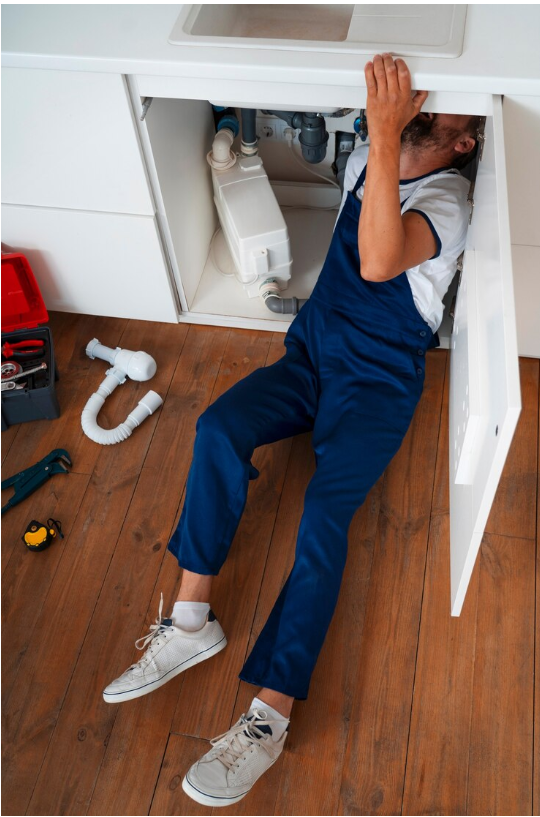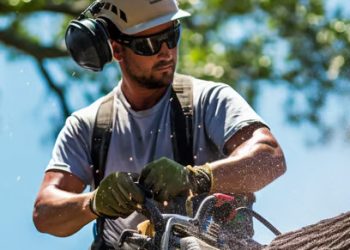Gas fitting plays a pivotal role in home renovations, especially for projects that aim to enhance functionality and safety. Integrating gas fitting is crucial when installing new gas appliances, updating heating systems, or improving kitchen facilities. Proper gas installations ensure efficient energy use, enhance the overall safety of the home, and comply with local safety regulations, making them essential components of modern residential renovations.
Why You Need a Professional Gas Plumber
Hiring a professional gas plumber is vital for any renovation project involving gas installations due to the complex and potentially hazardous nature of gas work. Professional gas plumbers bring:
- Expertise in Safe Installation: They possess the necessary skills and knowledge to handle gas lines and appliances safely.
- Compliance with Regulations: They ensure that all installations comply with local building codes and safety standards, which is crucial for legal compliance and insurance purposes.
- Quality Workmanship: Professional installation guarantees that gas appliances function efficiently and reliably, reducing the risk of gas leaks or other hazardous issues.
Planning Your Renovation with Gas Fitting in MindInitial Considerations for Including Gas Fitting in Your Project
When planning to include gas fitting in your renovation, consider the following:
- Scope of Project: Determine whether the renovation will require new gas lines or modifications to existing ones based on the addition of appliances.
- Existing Infrastructure: Assess the current gas system’s capacity and condition to understand if upgrades or extensions are needed.
- Local Regulations: Be aware of local building codes and standards that govern gas fitting to ensure compliance from the start of the renovation project.
Consulting with a Gas Plumber Early in the Process
Involving a gas plumber early in the planning phase of your renovation is crucial for seamless integration and efficiency. Early consultation allows the plumber to:
- Assess and Advise: Provide professional assessments of your existing systems and advice on necessary upgrades or changes.
- Plan for Integration: Help design a gas system that complements other renovation efforts, ensuring that all elements work together without conflicts.
- Estimate Costs and Timeline: Offer detailed cost and timeline estimates for the gas-related aspects of the project, aiding in overall budget and schedule planning.
Common Gas Fitting Tasks in Home RenovationsInstallation of Gas Appliances
The installation of gas appliances such as stoves, ovens, and home heating systems is a common task during renovations that require precise and safe handling:
- Stove and Oven Installations: Involves connecting appliances to gas lines, ensuring secure fittings and leak-free connections.
- Heating Systems: Setup may include laying new gas lines, installing heaters, and ensuring venting systems are up to code.
Upgrading Existing Gas Lines
Existing gas lines may need to be upgraded or replaced to meet the requirements of new appliances or to comply with updated safety standards:
- Capacity Upgrades: Enhancing the capacity of gas lines to support additional appliances or higher volumes of gas.
- Replacing Aged Pipework: Older pipework might need replacement to meet modern safety standards or to improve the efficiency of the gas system.
Navigating Challenges with Gas Fitting in RenovationsDealing with Older Home Infrastructure
Renovating older homes often presents unique challenges, particularly when updating gas systems:
- Aged Pipework: Older properties may have gas pipes that no longer meet current safety standards or are in a state of disrepair. A professional gas plumber can assess the condition of existing pipes and recommend replacements or upgrades as necessary.
- Compatibility Issues: Older systems might not be compatible with modern gas appliances. Gas plumbers need to adapt the setup to ensure compatibility, which may involve modifying the gas supply lines or pressure regulators.
- Historical Preservation: In some cases, renovations in historical properties need to maintain the integrity of the original design. Gas plumbers must navigate installing modern systems without disrupting the historical aesthetics.
Ensuring Compliance with Local Building Codes
Compliance with local building codes is not just a legal requirement but a crucial aspect of ensuring safety in gas fitting:
- Up-to-Date Knowledge: Professional gas plumbers stay informed about the latest building codes and standards, which can frequently change. Their expertise ensures that all installations are compliant and documented correctly.
- Permits and Inspections: Gas plumbers can manage the necessary permits required for gas work and coordinate inspections to validate that the installation meets all local regulations.
The Importance of Safety in Gas FittingSafety Protocols During Gas Installations
Safety is paramount when dealing with gas installations. Here are essential safety protocols followed by professionals:
- Leak Checks: After any installation or repair, thorough leak checks are conducted using electronic leak detectors or soap solution tests to ensure there are no gas leaks.
- Proper Ventilation: Ensuring adequate ventilation for gas appliances to prevent the build-up of harmful gases inside the home.
- Use of Correct Materials and Techniques: Using only approved materials and following best practices in gas fitting to prevent future problems such as gas leaks or pipe failures.
Testing and Verification Post-Installation
Before a gas installation project is considered complete, several testing and verification steps must be taken:
- Pressure Testing: Gas lines are pressure tested to ensure they can hold a specific pressure without leaking. This test is crucial for new installations and repairs.
- Functionality Testing: All connected appliances are tested to confirm they operate correctly and efficiently with the new or modified gas lines.
- Final Inspection Compliance: A final inspection by a certified inspector may be required to ensure the installation complies with all local codes and regulations. The gas plumber typically coordinates this inspection to ensure that the work passes without issues.
Cost Considerations and Budgeting for Gas FittingEstimating Costs Associated with Gas Fitting in Renovations
When planning for gas fitting in a home renovation, it’s essential to understand the potential costs involved, which can vary based on several factors:
- Scope of Work: The extent of the gas fitting required (e.g., new installations, extensions, or modifications) will significantly influence the overall cost.
- Complexity of the Project: Projects involving difficult access to pipework, complex installations, or compliance with stringent regulations may incur higher costs.
- Quality of Materials: Opting for high-quality, durable materials may increase initial costs but can reduce maintenance expenses in the long run.
- Labor Costs: These can vary depending on the expertise of the gas plumber and the geographic location.
To effectively budget for gas fitting:
- Get Multiple Quotes: Obtain estimates from several gas plumbers to compare prices and services.
- Include a Contingency Budget: Set aside an additional 10-20% of the estimated cost to cover unexpected issues or changes in project scope.
Potential Savings with Efficient Gas Solutions
Investing in efficient gas installations can lead to substantial long-term savings:
- Energy Efficiency: Modern, efficient gas appliances and well-designed systems minimize gas usage and reduce energy bills.
- Reduced Maintenance Costs: Quality installations and materials can decrease the frequency and cost of repairs and maintenance.
- Government Rebates: In some regions, installing energy-efficient systems may qualify homeowners for government rebates or tax incentives, further offsetting initial costs.
Conclusion: Maximizing Value with Professional Gas FittingRecap of the Benefits of Professional Gas Fitting Services
Incorporating professional gas fitting services into your home renovation offers significant advantages:
- Safety: Professional gas plumbers adhere to strict safety standards to ensure that all gas work is safe and compliant with regulations.
- Expertise: Experienced gas plumbers can handle complex installations and troubleshoot potential issues effectively.
- Compliance: Professionals ensure that all work meets local building codes and industry standards, which is critical for both safety and compliance.
- Value: Well-executed gas fitting can enhance the functionality and efficiency of your home, increasing its overall value.
Choosing the Right Gas Plumber
Selecting the right gas plumber is crucial for the success and safety of your renovation project. Consider the following when making your choice:
- Certifications and Licensing: Ensure the plumber has all necessary certifications and is licensed to perform gas work in your area.
- Experience: Look for a plumber with extensive experience, especially in handling projects similar to yours.
- Reputation: Check reviews and testimonials from previous clients to gauge the reliability and quality of the plumber’s work.
- Insurance: Make sure the plumber has adequate insurance to cover any potential damages during the project.









